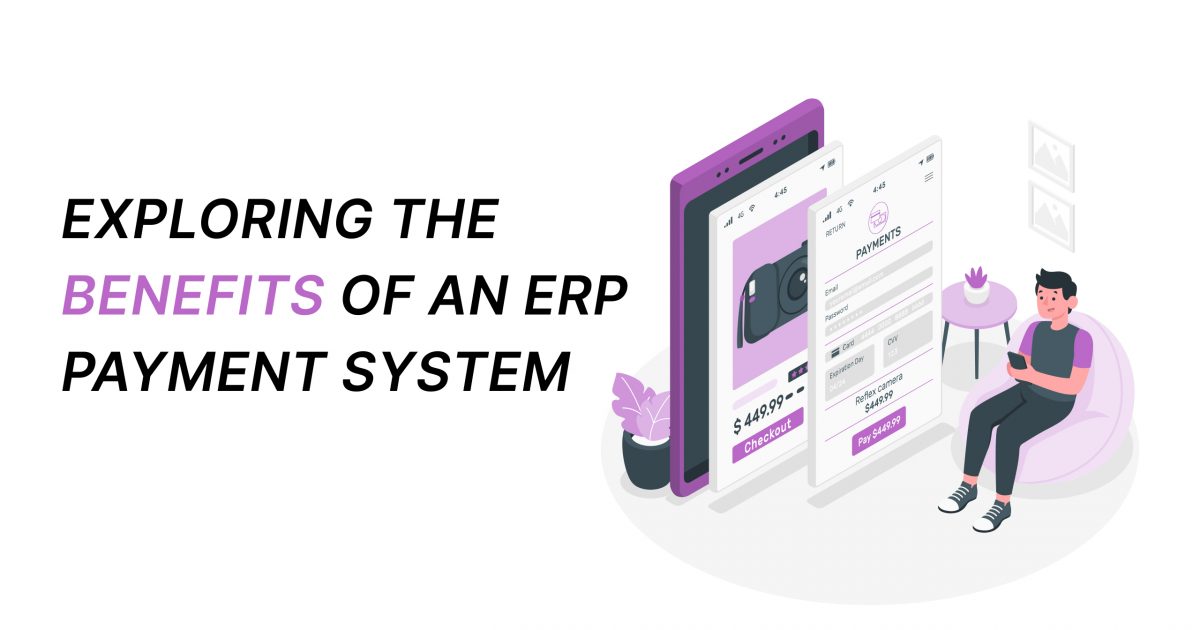When ERP software is integrated with payment processing, transaction data automatically flows from one system to another. This helps to eliminate redundant processes that can be prone to human error.
Streamlining these front and back-end systems leads to reduced Days Sales Outstanding for businesses and increased customer satisfaction.
Streamlined Invoicing
In a world where convenience rules, an ERP-integrated payment system can help you increase customer satisfaction by making it easy for your customers to pay invoices. This streamlined process can help you manage cash flow and keep your business agile.
When your ERP and payment processing system are integrated, transaction data automatically flows into the general ledger of the ERP. This reduces the need for duplicate efforts and prevents error-prone manual data entry.
This also ensures that your financial reporting is always up to date, which can lead to greater efficiency and improved decision-making. Enhanced security is also possible through PCI-compliant processing and tokenization, which can help avoid costly data breaches. This can save you from paying fines, compensating your customers, and repairing damaged company reputation.
Increased Customer Satisfaction
Streamlining the payment process from invoice creation to cash collection leads to fewer errors, quicker processing, and reduced Days of Sales Outstanding. This helps businesses achieve the benefits of an ERP payment system, like greater customer satisfaction, increasing retention, and NPS scores.
ERP integration with a reliable payment gateway solution can also allow clients to easily make payments online without interacting with staff. Studies show that including a click-to-pay link on an invoice speeds up the time to payment and makes it easier for clients to keep track of their outstanding bills.
In addition, integrated payment systems allow for more accurate reporting and real-time data to inform decision-making by key stakeholders.
These benefits can improve the quality of business processes, from credit management and customer relationships to inventory tracking and resource allocation.
Better Cash Flow
One of the benefits of integrating payments into an ERP is that it creates a single source of truth for financial data. This can improve decision-making, reduce processing costs, and help businesses serve customers more effectively by providing complete and accurate information.
An ERP with integrated payments also makes it easier for clients to pay invoices by integrating a payment gateway and allowing them to track the status of their payments. This can significantly cut down on days of sales outstanding and improve cash flow.
Additionally, ERP systems can identify unprofitable products so the company can stop producing them. This can save the business money on production costs, boosting profits. Additionally, fewer employees have to handle sensitive payment data, which can reduce the chances of a security breach.
Increased Efficiency
By integrating payments into an ERP system, businesses can automate redundant processes and free up time. This lets employees focus on other tasks and make informed decisions with real-time data.
Streamlined processes also improve business performance by eliminating manual work and human error. For example, an ERP payment solution that offers PCI compliance and tokenization eliminates the need for staff to enter credit card information into multiple systems manually.
Additionally, some ERP payment solutions enable a virtual terminal for customers to pay online and in-person, which helps reduce the overall cost of processing fees. This provides even more payment flexibility for clients and helps ensure that invoices are paid on time.
Increased Security
Companies see significant benefits when an ERP software solution is paired with the right payment processing partner. They can reduce their credit card and other transaction processing costs while providing faster, more accurate reporting for key stakeholders.
They can also mitigate days of outstanding sales and improve cash flow while serving their customers better.
ERP payment systems integrate with credit card gateways to automate real-time payments and track invoice status. They use tokenization technology, which converts a customer’s credit card number into a unique identifier that only works for that specific transaction.
This helps businesses achieve greater financial security by eliminating data theft and helping them stay compliant with PCI standards. They can even manage credit management by assessing a customer’s creditworthiness based on their historical transaction history.


